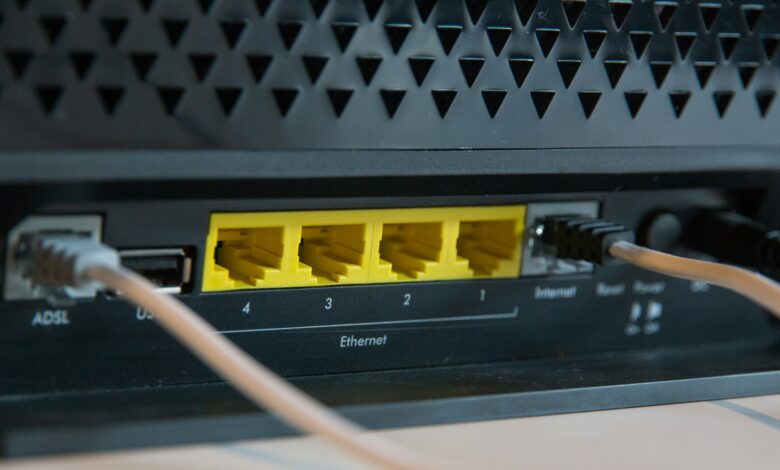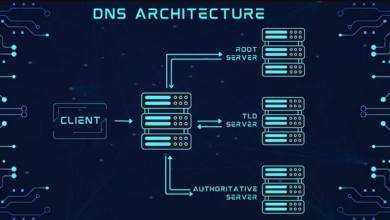What Types of CCNA Jobs You Can Get In 2024

Are you ready to revolutionize your career in the ever-evolving field of networking? Imagine unlocking a realm of opportunities with a single certification. CCNA jobs are not just plentiful; they are gateways to a future brimming with innovation and growth. In today’s hyper-connected world, the Cisco Certified Network Associate (CCNA) certification stands as a beacon of expertise and a testament to one’s technical prowess. Envision yourself as the architect of seamless, secure, and scalable networks. The journey to becoming a sought-after network professional starts here. Discover how the CCNA can transform your professional landscape.
Table of Contents
What is Cisco CCNA?

The Cisco Certified Network Associate (CCNA) is a prestigious certification that serves as a foundational benchmark for networking professionals. Designed by Cisco Systems, it validates an individual’s capability to install, configure, operate, and troubleshoot medium-sized routed and switched networks. The CCNA certification encompasses a broad range of networking principles, including IP addressing, subnetting, and VLANs, ensuring that certified professionals are well-equipped to handle the complexities of modern networks. Mastery of these skills opens up numerous CCNA jobs, where professionals are tasked with maintaining network integrity, optimizing performance, and implementing robust security measures. Achieving the CCNA certification not only enhances one’s technical acumen but also significantly boosts employability in the competitive IT landscape.
Earning a CCNA certification opens doors to a myriad of opportunities in the IT industry, where demand for skilled professionals in CCNA jobs continues to grow.
IT Career Insights
What Does the New CCNA Certification Cover?

The new Cisco Certified Network Associate (CCNA) certification has been meticulously redesigned to align with the dynamic needs of contemporary networking environments. This comprehensive certification encompasses a broad spectrum of critical topics, ensuring that candidates are proficient in both foundational and advanced networking concepts. The curriculum covers:
- Network Fundamentals:
- Understanding the architecture, functions, components, and models of networking, including the OSI and TCP/IP models.
- Differentiating between LANs, WANs, and other network types.
- Familiarity with networking devices such as routers, switches, and firewalls.
- Network Access:
- Configuration and verification of VLANs, spanning tree protocol (STP), and trunking.
- Implementation of wireless networks, understanding concepts like SSID, RF, and antenna types.
- Network interface and access control methods.
- IP Connectivity:
- Implementing IPv4 and IPv6 addressing schemes, including subnetting and VLSM.
- Routing protocols such as OSPF, EIGRP, and RIP, and their configurations.
- Understanding static and dynamic routing, route summarization, and redistribution.
- IP Services:
- Security Fundamentals:
- Implementing security protocols and securing network devices against threats.
- Basics of VPNs, firewalls, and intrusion prevention systems (IPS).
- Access control lists (ACLs) and securing administrative access.
- Automation and Programmability:
- Introduction to network automation, including concepts of network programmability, Software-Defined Networking (SDN), and Application Programming Interfaces (APIs).
- Understanding of configuration management tools like Ansible, Puppet, and Chef.
- Basics of Python programming for network automation.
Is the Certification Worth it for CCNA Jobs?
| Benefit | Description |
| Career Advancement | 1- Opens doors to higher-level CCNA jobs like network administrators, network engineers, and systems engineers. 2- Enhances your resume, making you a more attractive candidate for promotions and new job opportunities in reputable organizations. 3- Provides a pathway to more specialized Cisco certifications, further advancing your career prospects. |
| Skill Validation | 1- Validates your ability to manage, configure, and troubleshoot network infrastructures, including both wired and wireless networks. 2- Demonstrates a comprehensive understanding of networking principles such as IP addressing, subnetting, VLANs, and routing protocols, which are crucial for advanced IT roles. 3- Ensures proficiency in implementing network security measures, essential in today’s cybersecurity landscape. |
| Job Market Competitiveness | 1- Increases your employability as certified professionals are highly sought after by top employers, including Fortune 500 companies and government agencies. 2- Sets you apart from non-certified peers, giving you a competitive edge in the job market and potentially leading to quicker job placements and better job security. 3- Enhances your professional credibility and recognition in the IT community. |
| Earning Potential | 1- Leads to higher salaries as CCNA jobs often come with increased pay due to the specialized skills required. 2- Provides opportunities for bonuses, performance incentives, and salary increments, reflecting the high value placed on certified professionals. 3- May qualify you for more lucrative contract work and consulting opportunities in the networking field. |
| Continuous Learning | 1- Knowledge and skills gained during certification are indispensable, providing a robust foundation in networking and a deeper understanding of network architecture and design. 2- Ensures long-term career growth by staying updated with the latest technologies and best practices through CCNA training, including emerging areas like network automation and programmability. 3- Encourages a commitment to lifelong learning and professional development, fostering a proactive approach to staying current in the fast-paced IT industry. |
Job Roles That Require a CCNA Certification
1- Network Administrator
A Network Administrator plays a pivotal role in ensuring the seamless operation and security of an organization’s network infrastructure. This professional is responsible for:
- Network Monitoring and Maintenance: Regularly monitoring network performance, troubleshooting issues, and optimizing network speed and efficiency.
- Configuration and Installation: Setting up and configuring network equipment such as routers, switches, firewalls, and wireless access points to ensure connectivity and security.
- Security Management: Implementing and maintaining network security measures, including firewalls, VPNs, and intrusion detection systems (IDS/IPS), to protect against cyber threats.
- User Support and Training: Providing technical support to end-users, troubleshooting network-related problems, and conducting training sessions to enhance user understanding of network capabilities.
- Documentation and Compliance: Documenting network configurations, procedures, and changes to ensure compliance with organizational policies and industry regulations.
2- Network Engineer
A Network Engineer occupies a critical role in designing, implementing, and maintaining an organization’s network infrastructure. This profession entails:
- Network Design and Planning: Developing network architecture blueprints, incorporating advanced routing and switching protocols to optimize network performance.
- Implementation and Configuration: Deploying and configuring network hardware and software components, including routers, switches, load balancers, and firewalls, to ensure seamless connectivity.
- Troubleshooting and Optimization: Proactively identifying and resolving network issues, conducting performance analysis, and implementing enhancements to meet evolving business needs.
- Security Integration: Integrating robust security measures such as access controls, encryption protocols, and intrusion detection systems (IDS/IPS) to safeguard network integrity.
- Collaboration and Documentation: Collaborating with cross-functional teams, documenting network configurations, and providing technical guidance to support ongoing operations.
CCNA jobs are not just about networks; they’re about empowering businesses with secure and efficient communication pathways.
Tech Industry Analyst
3- Systems Administrator
A Systems Administrator plays a crucial role in maintaining and managing an organization’s IT infrastructure, ensuring smooth operations across various systems. Key responsibilities include:
- Server Management: Configuring, installing, and maintaining servers to ensure optimal performance and reliability.
- System Monitoring and Troubleshooting: Monitoring system performance, identifying and resolving issues promptly to minimize downtime.
- Backup and Recovery: Implementing backup strategies and disaster recovery plans to safeguard data integrity and continuity of operations.
- User Support and Training: Providing technical support to end-users, troubleshooting system-related problems, and conducting training sessions to enhance user proficiency.
- Security Administration: Managing user access controls, implementing security policies, and ensuring compliance with cybersecurity regulations.
Professionals seeking CCNA jobs often find that certifications like Cisco’s CCNA enhance their qualifications by providing a solid foundation in networking principles. This knowledge is invaluable in integrating systems with network infrastructure and ensuring seamless communication and operations across the organization.
Conclusion
In conclusion, pursuing a CCNA certification can significantly elevate your career in the realm of networking. It serves as a gateway to lucrative CCNA jobs such as Network Administrator, Network Engineer, and Systems Administrator, offering opportunities for career advancement and increased earning potential. The certification validates your expertise in managing and troubleshooting network infrastructures, equipping you with essential skills in network design, security, and optimization. As technology continues to evolve, holding a CCNA certification not only enhances your professional credibility but also ensures you remain competitive in the ever-changing IT landscape.
Investing in a CCNA certification is investing in your future. It’s a passport to a rewarding career in network administration, engineering, or system management.
Networking Expert
FAQs about CCNA Jobs
- What are CCNA jobs? CCNA jobs refer to positions in IT and networking that require or highly value Cisco Certified Network Associate (CCNA) certification. These roles include Network Administrator, Network Engineer, and Systems Administrator, among others.
- Why pursue a CCNA certification for career growth? A CCNA certification validates your expertise in networking fundamentals, making you eligible for a wide range of CCNA jobs. It enhances career prospects by demonstrating proficiency in managing, securing, and optimizing network infrastructures.
- What skills do CCNA jobs typically require? CCNA jobs often require skills in network configuration, troubleshooting, security implementation, and knowledge of routing and switching protocols. These skills are essential for roles such as Network Engineer and Systems Administrator.
- How does a CCNA certification impact earning potential? Holding a CCNA certification can lead to higher salaries in CCNA jobs due to the specialized knowledge and skills it represents. It opens doors to roles with competitive pay scales and opportunities for career advancement.
- What are the benefits of CCNA jobs in today’s job market? CCNA jobs are in high demand as organizations increasingly rely on robust network infrastructures. Certified professionals are sought after for their ability to ensure network reliability, security, and performance.
- Is the CCNA certification suitable for beginners in networking? Yes, the CCNA certification is ideal for beginners looking to enter the networking field. It provides a comprehensive understanding of networking principles and prepares individuals for entry-level CCNA jobs and beyond.
- How can obtaining a CCNA certification enhance professional credibility? Achieving a CCNA certification demonstrates a commitment to excellence in networking. It enhances professional credibility by validating skills relevant to CCNA jobs and showcasing expertise in managing modern network environments.





One Comment